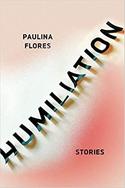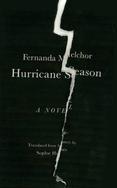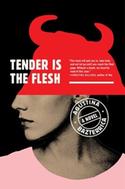 The other day I was reading a short story called "Teresa" by Paulina Flores. It appears in the sparkling collection Humiliation (Catapult, $16.95) and observes a woman as she considers the plight of a girl who appears to be lost at the public library, spurring a memory of when she was a lost child and assumed a false name. Through meticulously teased-out details, the narrator spools out a story of happenstance and deceit with such delicacy that my attention was rapt from beginning to end.
The other day I was reading a short story called "Teresa" by Paulina Flores. It appears in the sparkling collection Humiliation (Catapult, $16.95) and observes a woman as she considers the plight of a girl who appears to be lost at the public library, spurring a memory of when she was a lost child and assumed a false name. Through meticulously teased-out details, the narrator spools out a story of happenstance and deceit with such delicacy that my attention was rapt from beginning to end.
Flores is a compelling writer, transforming every quotidian element into a finely wrought hook. It also dawns on me that this multitude of hooks worked on me thanks to the careful touch of Megan McDowell, who translated the Chilean author's work from the Spanish. And to do so effectively, McDowell had to preserve the author's detail-oriented style.
 Sophie Hughes manages a similar task in her translation of Mexican author Fernanda Melchor's elaborately twisted sentences in the riveting Hurricane Season (New Directions, $16.95)--with nary a period to the page. To translate not only the words but also the breathless style is crucial to the magic Melchor works in this gruesome story about a town's murder of a witch, because it enacts that sinister insistence present in all great urban legends.
Sophie Hughes manages a similar task in her translation of Mexican author Fernanda Melchor's elaborately twisted sentences in the riveting Hurricane Season (New Directions, $16.95)--with nary a period to the page. To translate not only the words but also the breathless style is crucial to the magic Melchor works in this gruesome story about a town's murder of a witch, because it enacts that sinister insistence present in all great urban legends.
 I also recently enjoyed Tender Is the Flesh by Agustina Bazterrica (Scribner, $16), winner of Argentina's Clarín Novela Prize, whose style is perhaps the opposite. In Sarah Moses's translation, the oppressive atmosphere necessary to support a cannibalistic social regime emerges in terse, austere sentences--delivered rapidly and with a level of directness that leaves no room for doubt or second-guessing.
I also recently enjoyed Tender Is the Flesh by Agustina Bazterrica (Scribner, $16), winner of Argentina's Clarín Novela Prize, whose style is perhaps the opposite. In Sarah Moses's translation, the oppressive atmosphere necessary to support a cannibalistic social regime emerges in terse, austere sentences--delivered rapidly and with a level of directness that leaves no room for doubt or second-guessing.
As my appreciation for literature in translation deepens, I've begun to revere a translator's name as much as the author's. Because together they work miracles. --Dave Wheeler, associate editor, Shelf Awareness

